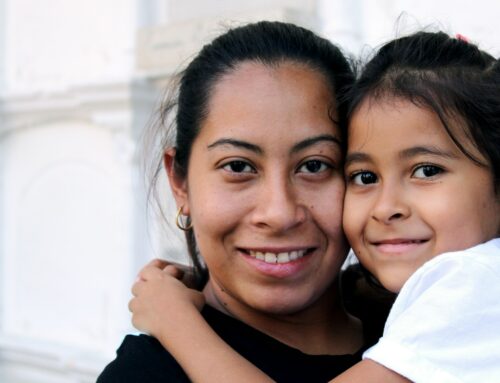With the Covid-19 coronavirus pandemic turning society upside-down, everything is now suspended in uncertainty. And that includes Canadian immigration policy. Because of its low population density and remote geographic location, Canada often enjoys some insulation from the greater worries of the world. But the coronavirus is an invisible assassin who knows no boundaries. So Canada now faces the same kind of health crisis and social upheaval that’s upsetting the rest of the world.
A nation of immigrants, Canada may feel a unique impact from the fallout of this rapidly unfolding crisis. Travel restrictions are making it difficult to enter the country, and many would-be immigrants are having to put their plans on indefinite hold. Not only that, but many Canadians are wondering if it’s time to revise the country’s immigration policies altogether. Although most studies would indicate that even in a time of economic contraction, immigrants continue to be quite valuable and do little or nothing to worsen the unemployment conditions.
Canadian Immigration policies at a glance
As the second largest country in the world by area, after Russia, Canada is anything but crowded. And the nation’s vast wealth of natural resources make it a real land of opportunity for those who live here. Yet its economy seems to grow faster than the native population, so Canada has always been very open to accepting foreign workers and immigrants.
Prime Minister Trudeau’s Liberal government established even more ambitious immigration policies, beginning around 2015, accepting about 300,000 immigrants a year. Between 2018-2020, Canada was slated to bring in more than a million new residents from around the world. For a country with a total population still shy of 38 million, those are some pretty significant numbers.
Canada’s growing economy — especially in highly skilled areas like medicine, engineering and high tech — continue to create something of a labor shortage. In order to maintain its competitive edge in the global economy, this advanced but sparsely populated nation is constantly recruiting skilled workers from overseas.
Furthermore, with a low birth rate, Canada is home to an aging population. That not only depletes the workforce, but it also creates another growing need for nurses and healthcare workers. Nurses and caregivers, therefore, are among the most highly sought after workers entering the country.
This is not a subject that’s entirely free from controversy, however. There are voices on the right who oppose the Liberal government’s open immigration policies. Many of them see it as a threat, either to Canada’s domestic job market, or to its cultural purity. It should be noted that most Canadians recognize ethnic diversity as a cornerstone of the country’s culture. But the question of whether immigrants are depriving native Canadian’s of employment opportunities maybe a thornier one.
Immigration in a downturned economy
In a historically unprecedented move, enormous segments of the global economy shut down completely as shelter-in-place and stay-at-home rules went into effect around the world. We have yet to fully realize the impact this will have on the world and on local economies, but the ramifications are certain to be profound.
Official government figures put unemployment at nearly 8%, although the actual numbers are certainly much higher. Millions more Canadians have also seen their hours and paychecks cut in half since the economic implosion that began in mid-March. Since March 15, more than 5 million Canadians have applied for emergency benefits. This suggests that more than 20% of the nation’s workforce is in jeopardy.
Many Canadians, particularly those already skeptical of open immigration, are now calling for tighter immigration policies to protect current Canadian residents from further competition in the job market. The reasoning behind this anti-immigration argument makes a certain amount of sense. However, economic studies performed during other recessions seem to indicate that the immigrant workforce actually contributes substantially to the economic recovery.
Following the 2008 economic crisis, a study in the U.S. demonstrated that immigrants have a small negative effect in the short run, but their impact was negligible in the long run. In a country like Canada, so heavily dependent on immigrants, especially in the highly skilled sectors mentioned earlier, immigrants are likely to be more essential than ever.
One crucial factor that critics often overlook when they rely on their gut instincts to rail against immigration, is the balance between working Canadians and retired Canadians. With an aging Baby Boomer population, the pressure on working Canadians to finance the retirement and healthcare of older Canadians increases with every passing year.
Like everything else happening right now, it’s impossible to know exactly which industries and employees will be most affected by the Covid-19 shutdown. And how the economic recovery will play out remains perhaps the greatest mystery of all. But one thing is certain, Canada will not be able to pull out of this debacle without its strong and skilled immigrant labour force.
Additional resources
ARIANNE Relocation has been helping students, families and skilled workers relocate to Canada for more than two decades. We recognize Canada’s need for foreign skills and experience, and we also understand the need for immigrants to assimilate in their new country. Visit our website to learn more about our extensive range of relocation products and services, from our comprehensive Online City Guides to one-on-one Tele-Consultations.
You might also find the following articles helpful:
- Canadian healthcare for immigrants
- Moving to Canada as a skilled worker
- Canadian immigration statistics
PHOTO CREDIT: Canadian society in times of Covid-19 coronavirus (Unsplash)







Leave A Comment